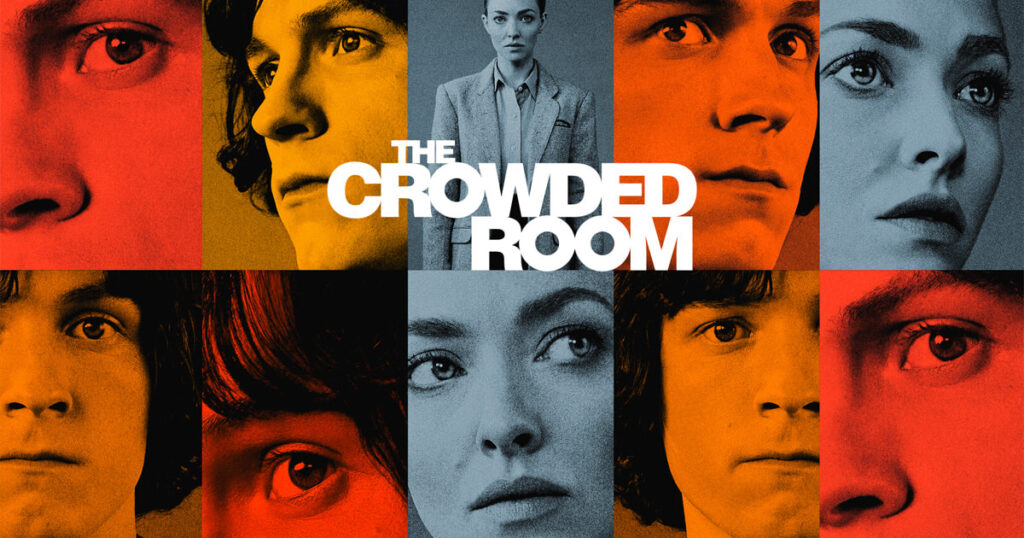A dissociative identity disorder or multiple personality disorder is a rare medical condition. And I believe that exploring this through a miniseries is a great idea. You see, only a series can give you ample space and time to build a complex character arc. When Netflix tried to portray this through a documentary, it was clear to me that a full grown adaptation can only do justice to this kind of complexity. And after watching the adaptation on Apple TV plus, I think that The Crowded Room shines and leaps miles ahead of most psychological thrillers. It’s an adaptation of the 1981 novel, The Minds of Billy Milligan, written by Daniel Keyes.
For reviewing a series or a movie based on dissociative identity disorder, it’s much easier to compare it with David Fincher’s Fight Club where the characters of Brad Pitt and Edward Nortan struggle to keep one of the personalities. But, I have a different analogy and you might agree when you watch the series. I have two in fact two analogies to bring in here for perspective and comparison. The first is Defending Jacob and the second one is Boy A. If you have watched Defending Jacob, you would know the dilemma that an audience might be put through while judging a character. At first, you would feel all the sympathy for the character but only at the end you’ll realize that your assumptions and feelings might be wrong. The Crowded Room does exactly that with the first five episodes. From the sixth episode, you know how exactly this story is going to unfold itself. And that’s where my comparison with the movie Boy A starts.
So instead of making it a boring second half, The Crowded Room takes another approach to deal with it. When Andrew Garfield played the character of Jack Burridge in Boy A, I was taken aback emotionally. The kind of societal judgment and rejection that a person might feel and go through to finally decide to give up their life is something deeply hurting and emotionally moving. Andrew Garfield was able to manage that with his strong acting skills. The episodes six to nine of this series explored and emphasized on just that. In fact in episode nine, Danny Sullivan’s mother (played by Emmy Rossum) even rejected the idea of whether he was in any way harmed or physically abused by his step dad. The ninth episode is named as Family and the kind of support he got from his own mother is equally distressing and disturbing for the audience. The scene where he tries to give up his life in a prison cell has moved me in the same way Andrew Garfield played his’ in Boy A in the climax. And Tom Holland’s performance is eclectic.
Even the last episode is scripted very well where Danny finally confronts his mother about when she realized that her son had gone through such a trauma. And the performance by Emmy Rossum is commendable how she always knew but was under deep conflict and influence of a strong man (Danny’s step dad) to never accept it. She wanted a stronger man in their life but was only able to replace it with a monster. And Danny’s silence says it all because he just wanted his mother to be safe.
It’s a must watch series if you’re intrigued and have an appetite for emotional psychological thrillers and it has a strong blend of some of the great acting performances, script writing, and direction. And not to forget, even the attorney who defended Danny (played by Christopher Abott) in the court is phenomenal in his dialog delivery. Amanda Seyfried in her most mature performance is also rewarding. Her chemistry with both the lead character and the attorney is great.
While some of the critics have bashed the show hard, I think this is one of the best series I have watched in recent years.
